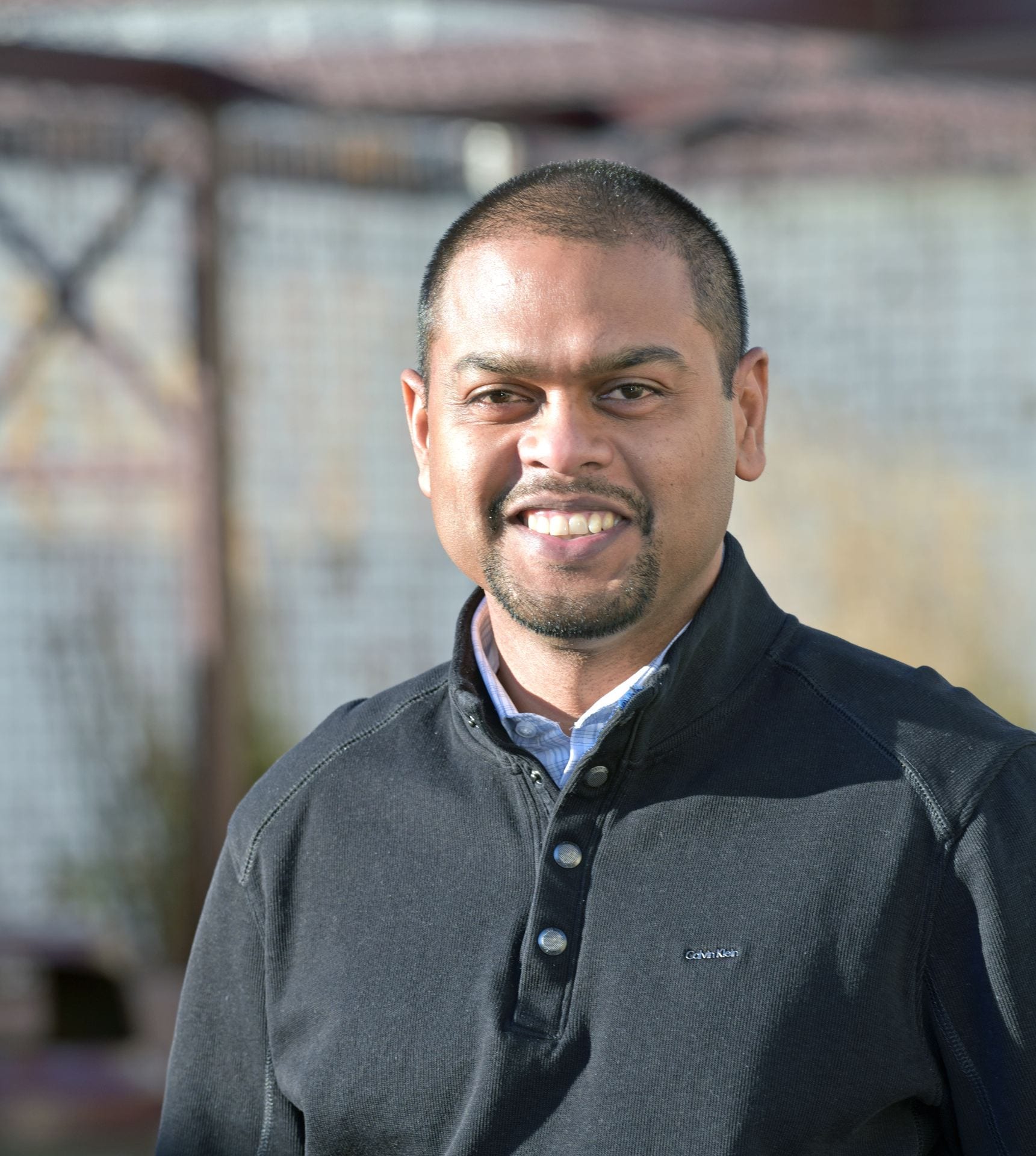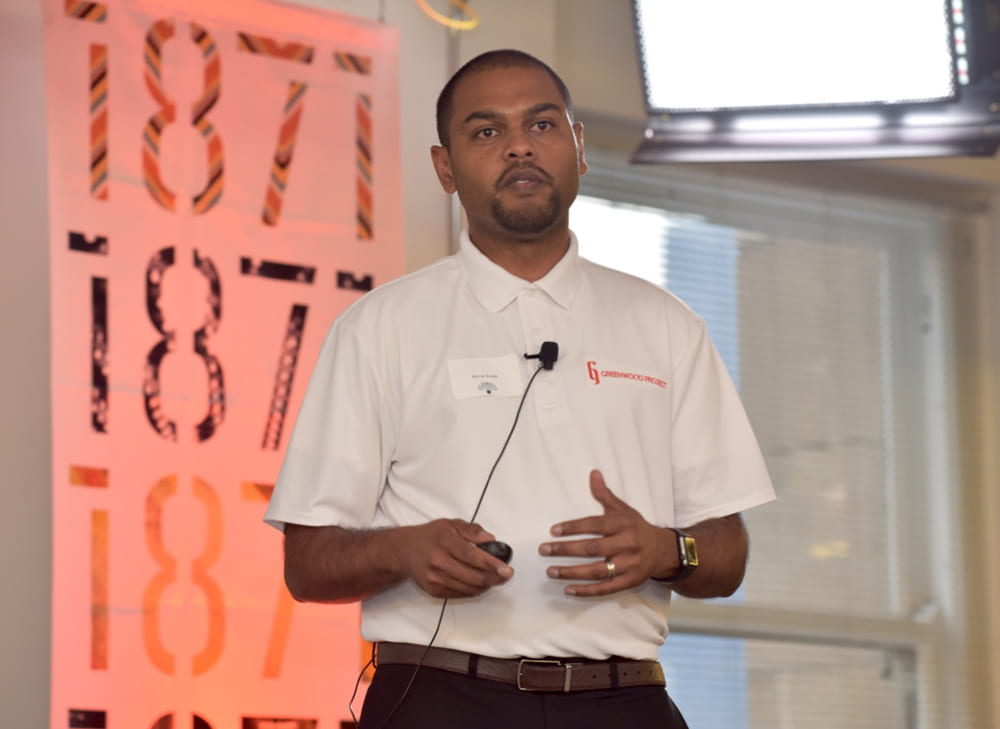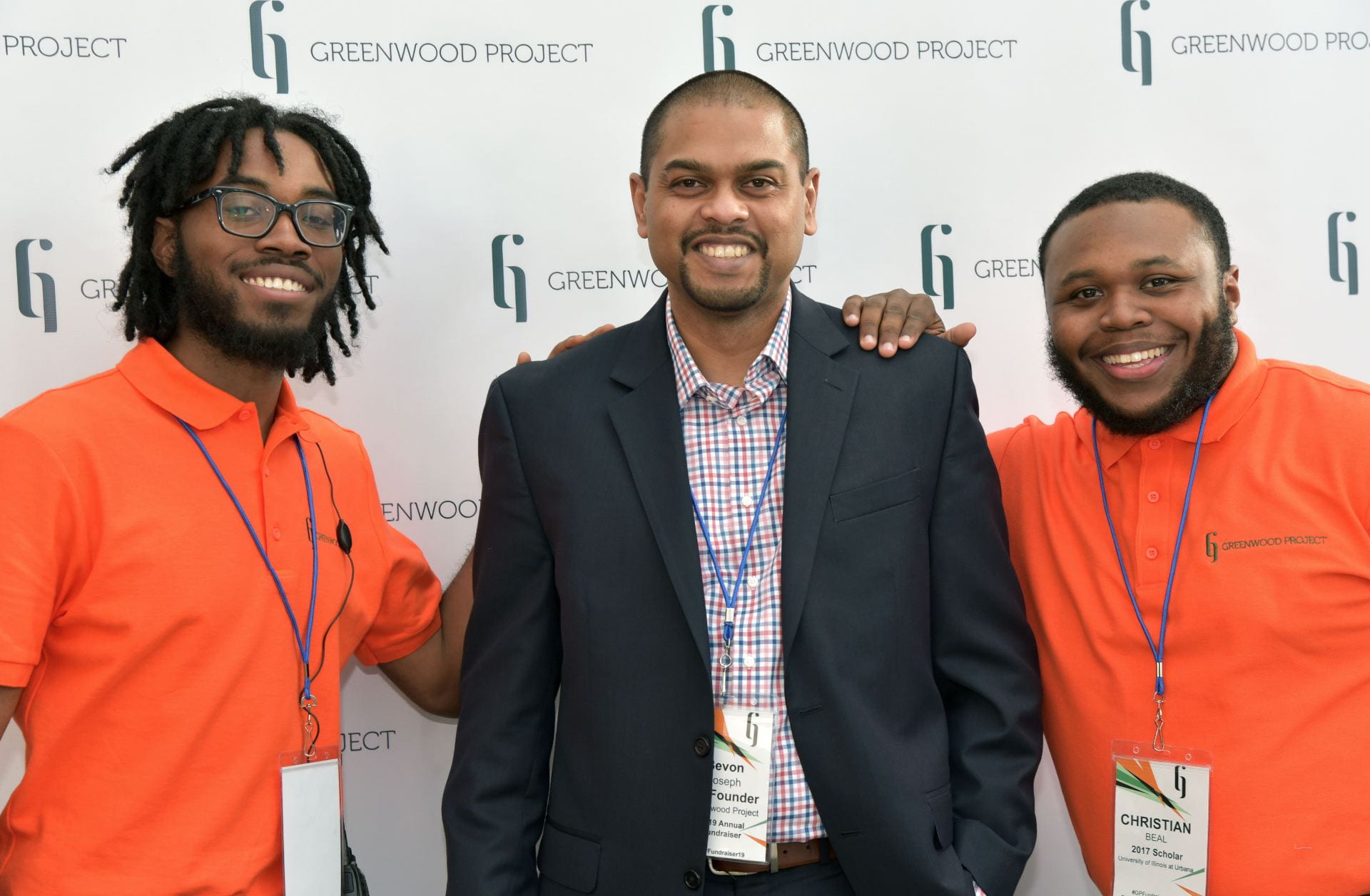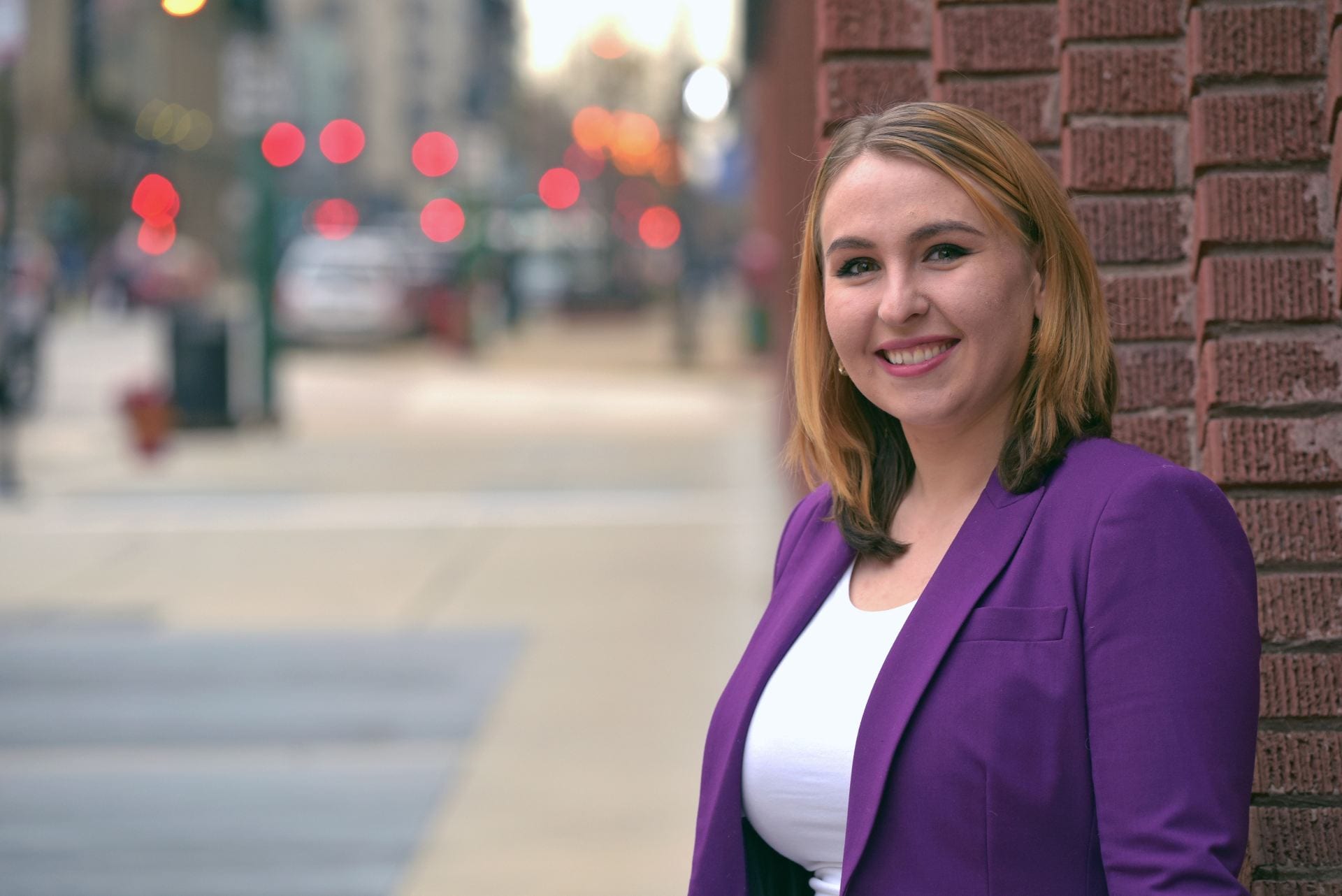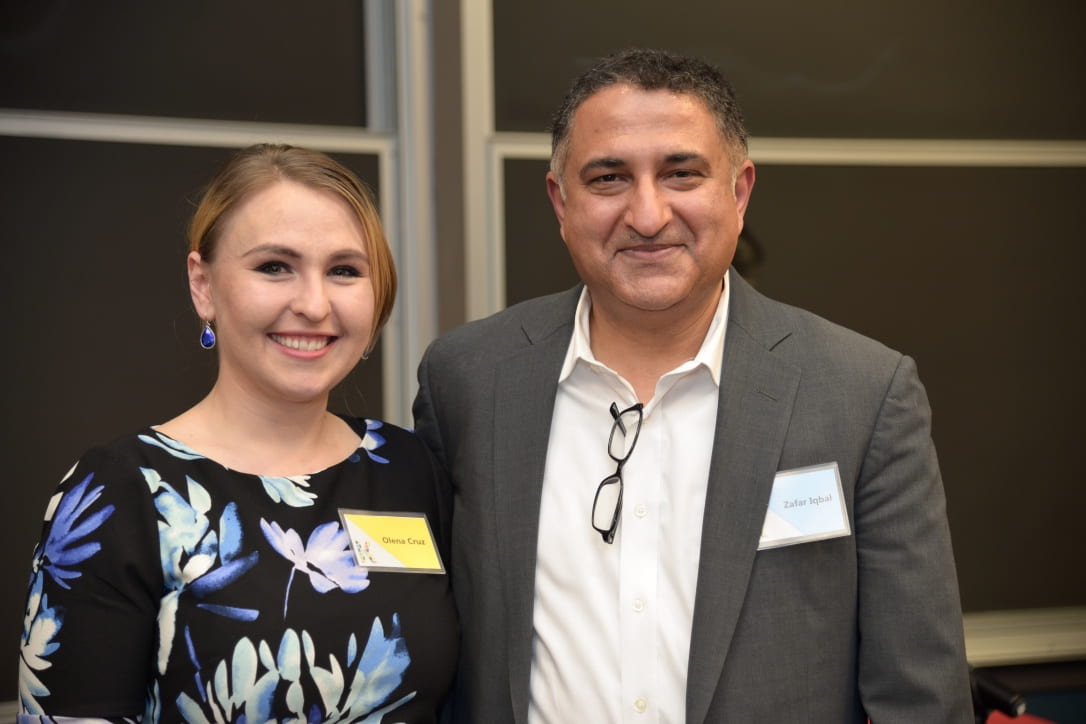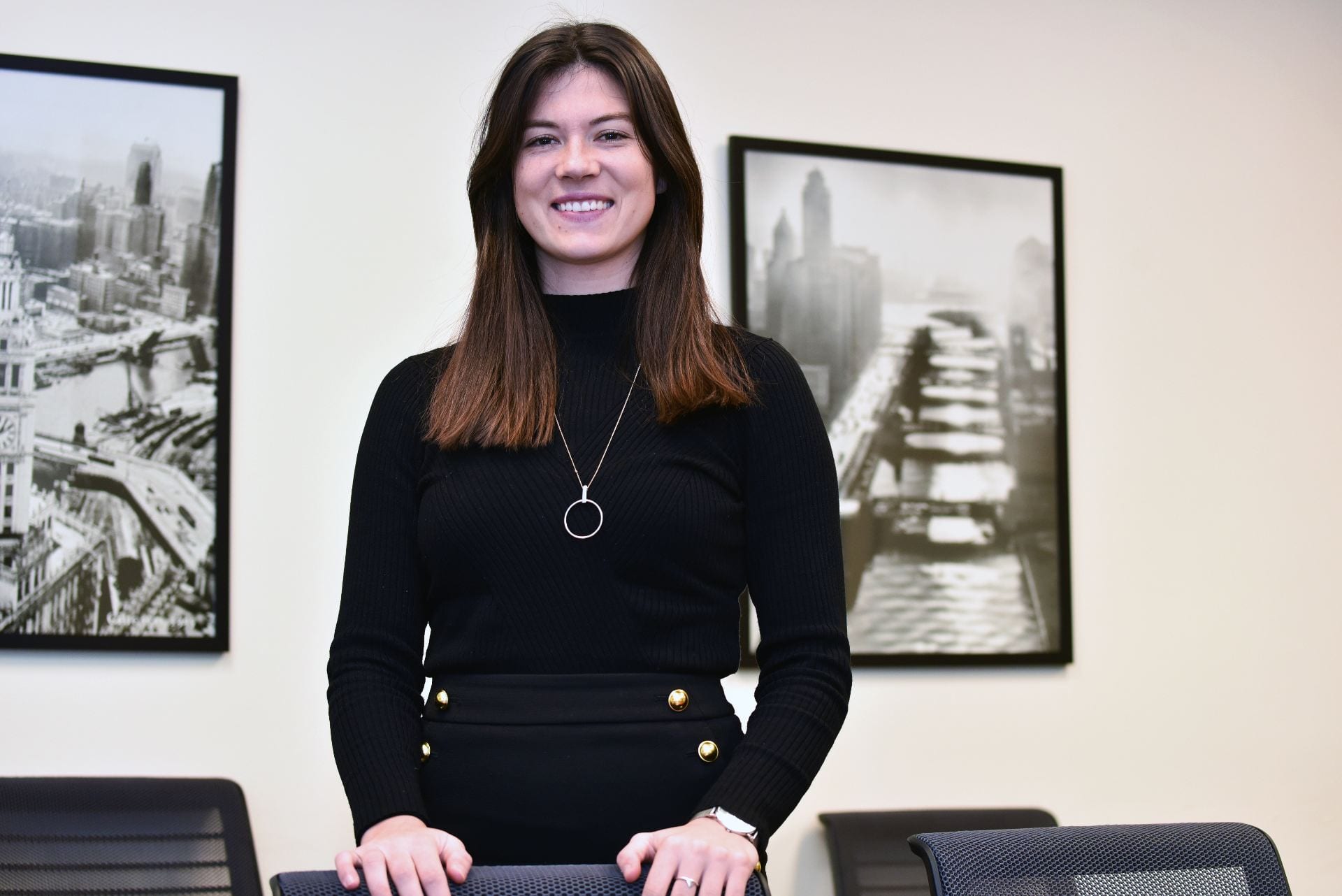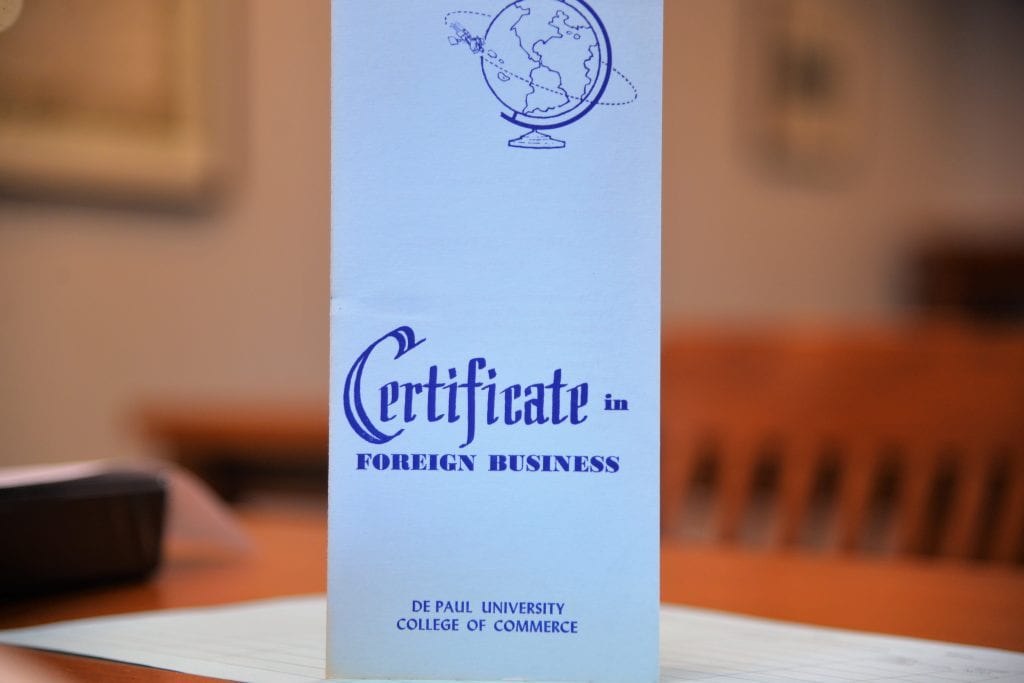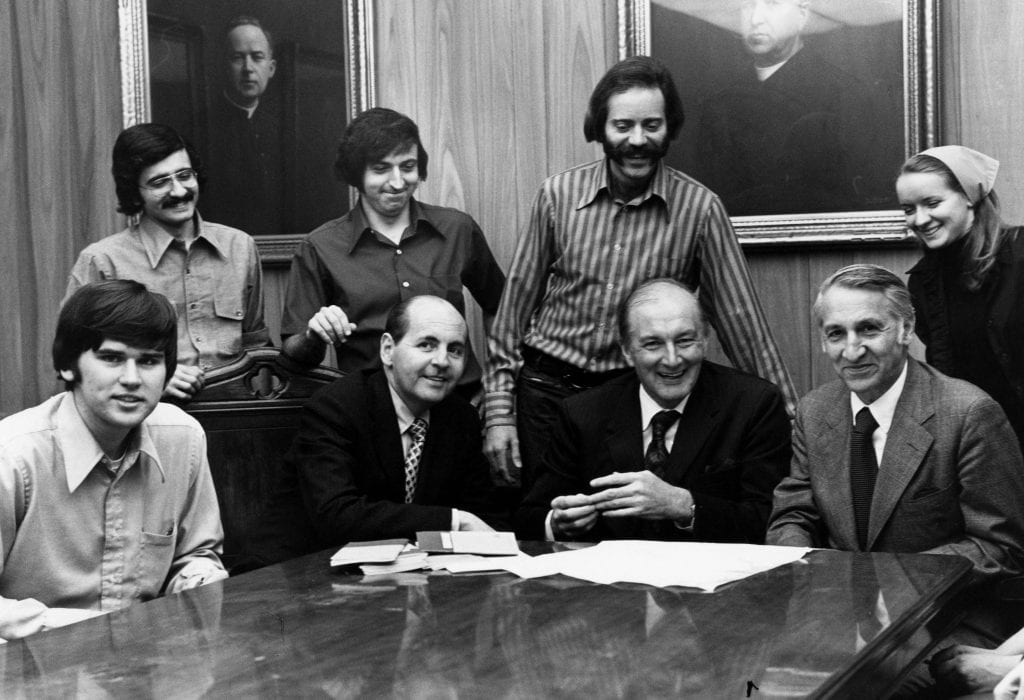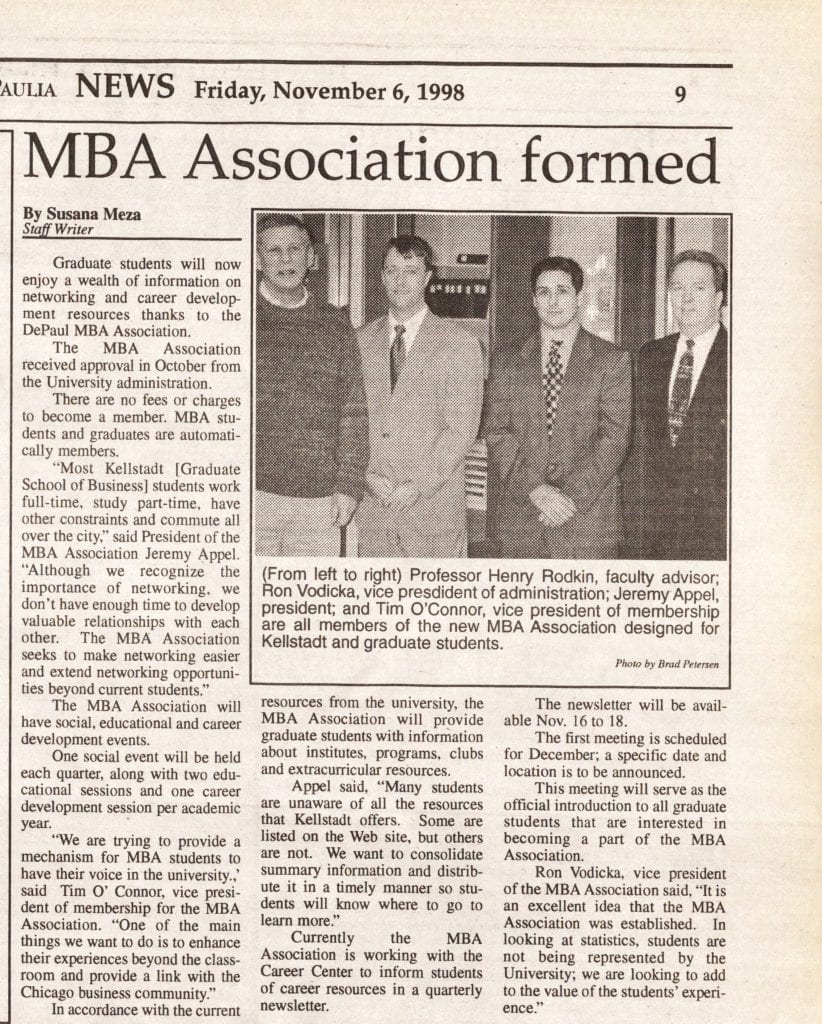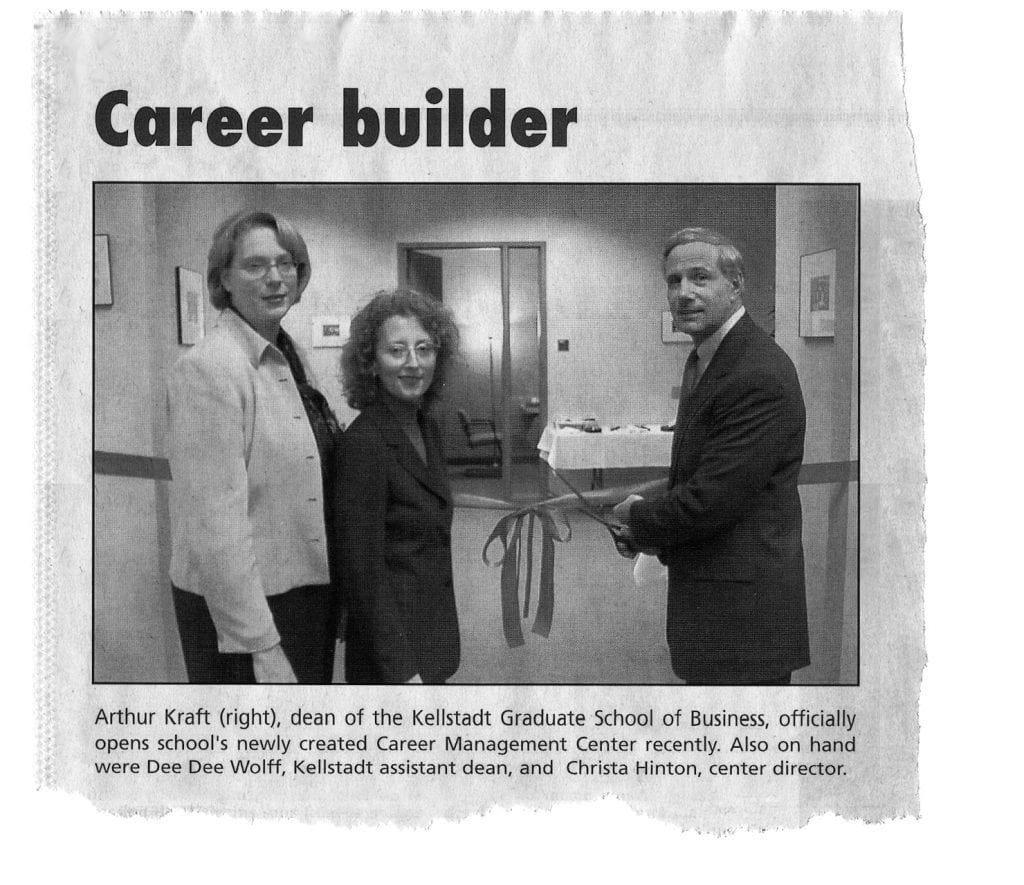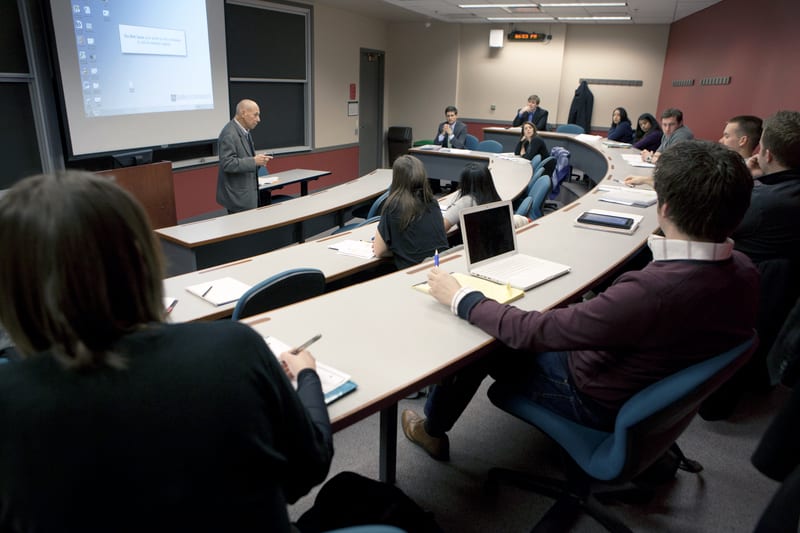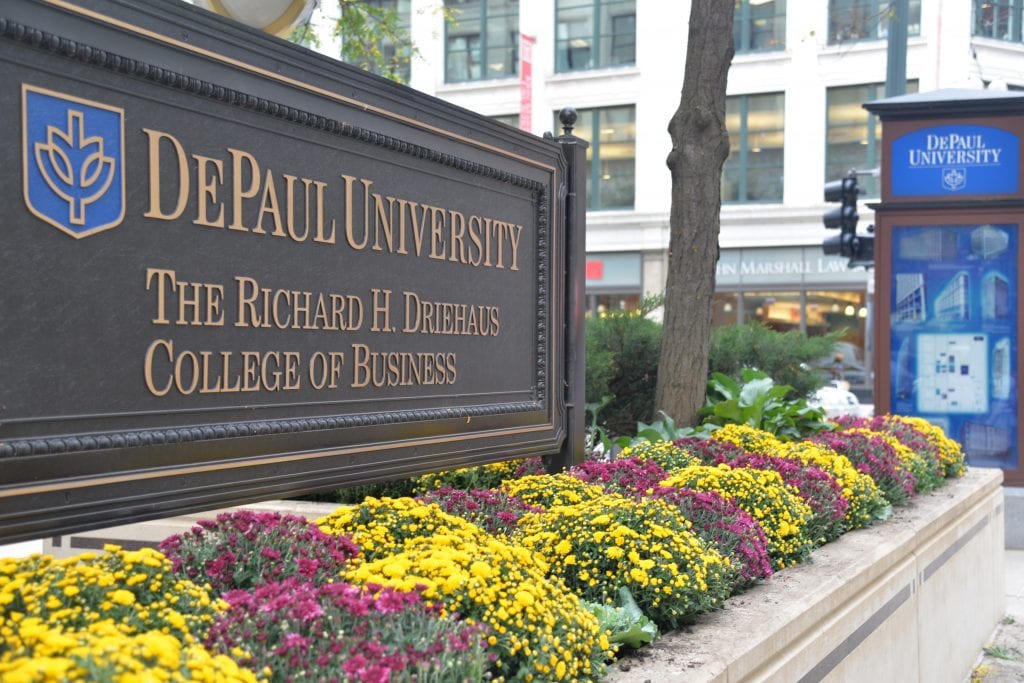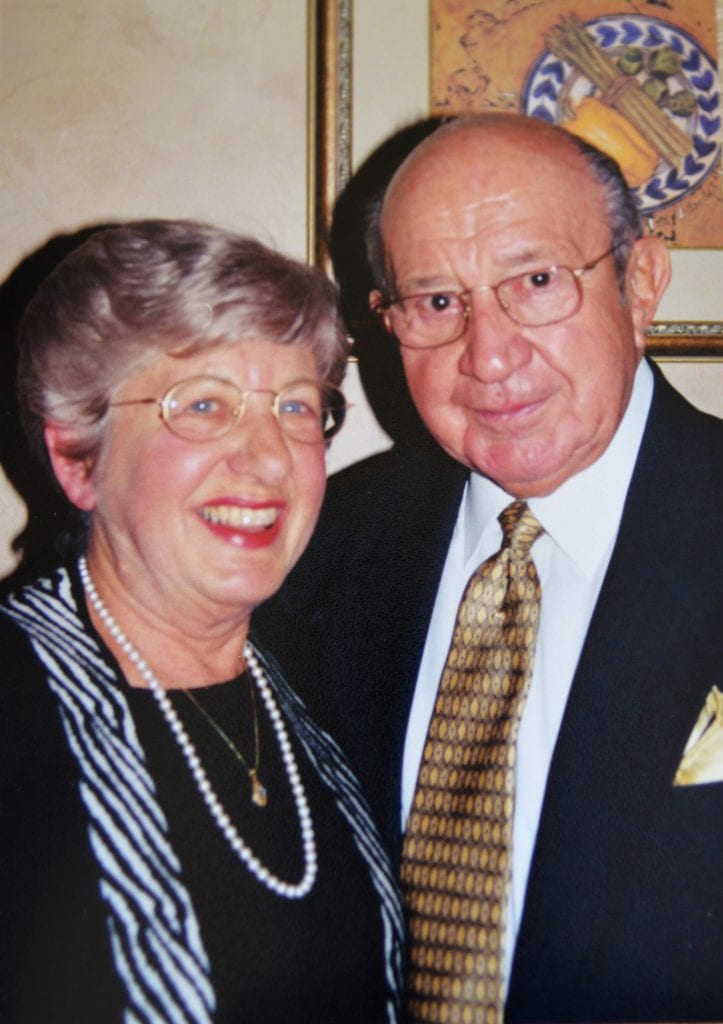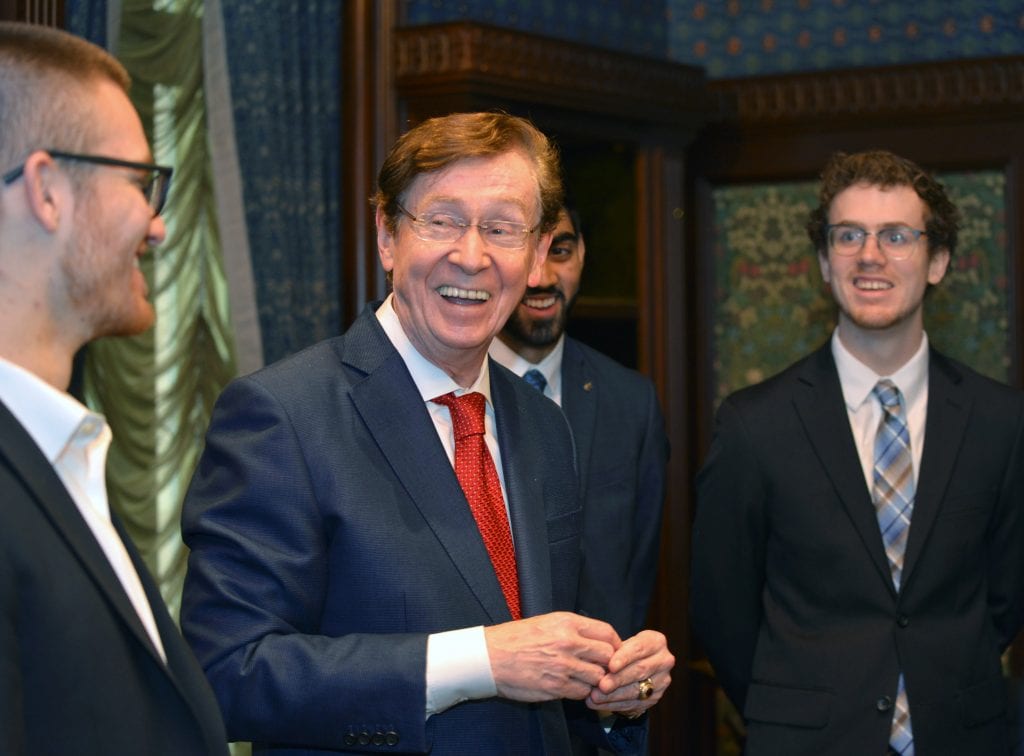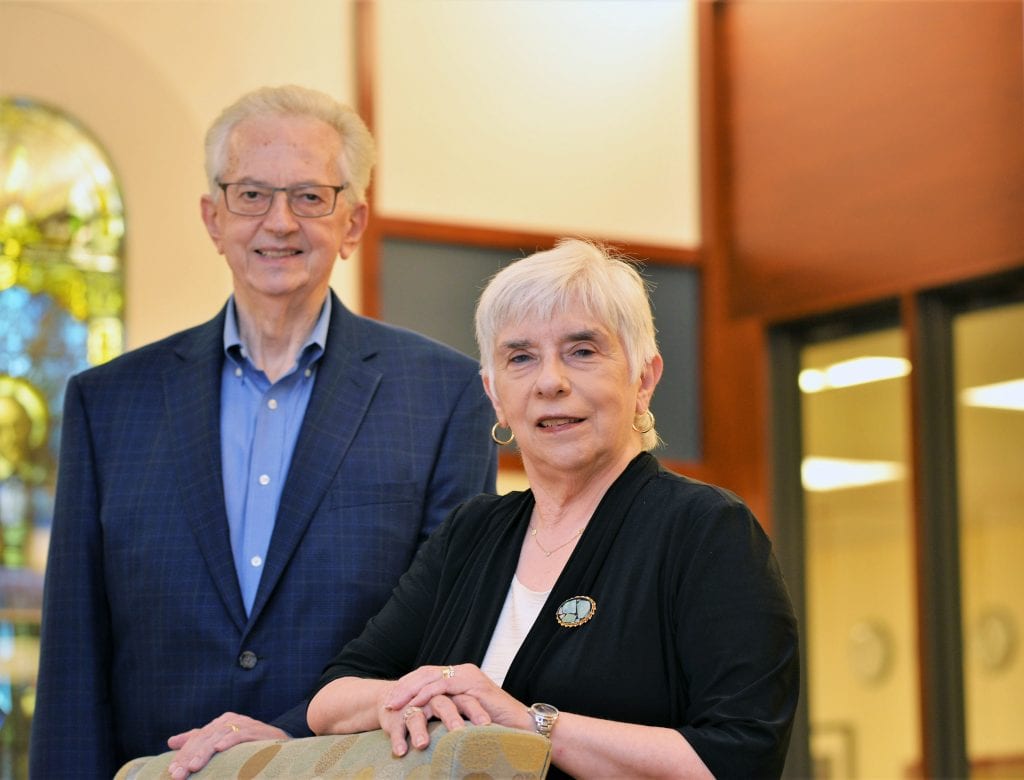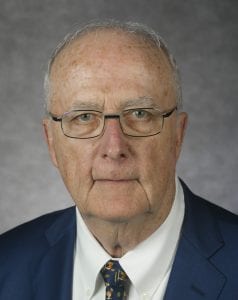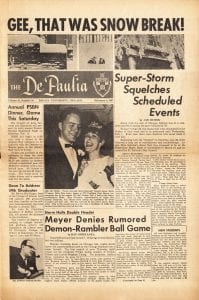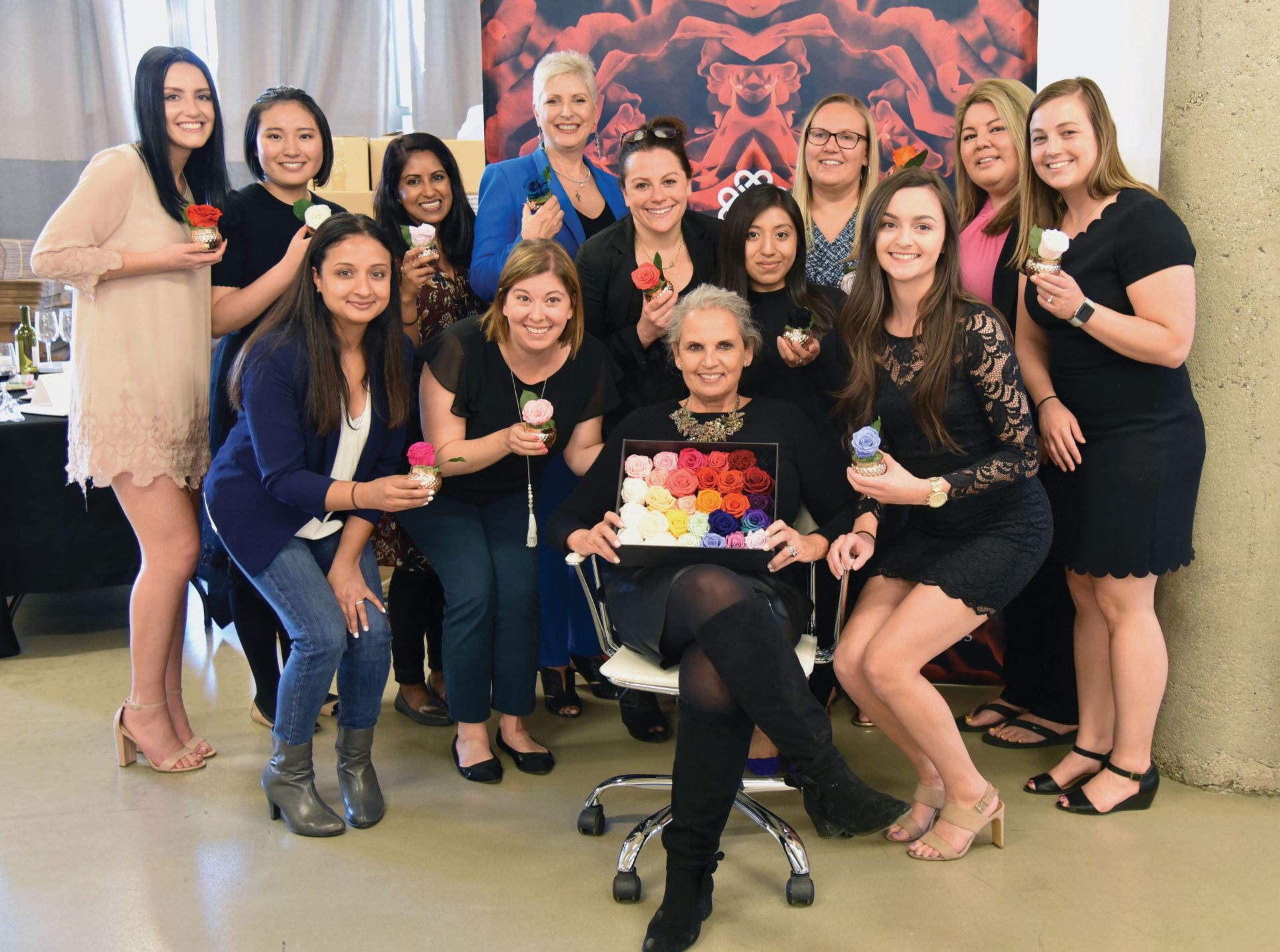
We’re going through the academic research that focuses on gender and entrepreneurship and trying to understand the key drivers of gender disparities in entrepreneurship. We are trying to use research evidence to uncover opportunities to level the playing field.”
– Alyssa Westring
Last spring Shelley Rosen, one of the 40 founding committee members of the Women in Entrepreneurship Institute (WEI), welcomed a mix of DePaul graduate and undergraduate students to her West Side Chicago office, where she and several employees run her luxury flower business Luxe Bloom. The students were celebrating their completion of Women Entrepreneurs, a new special topics course taught by Associate Professor of Management and Entrepreneurship Alyssa Westring. Rosen was among the class’s guest speakers, providing an inside look at the real world of women in entrepreneurship.
The class—created by Westring, who serves on the WEI committee— required students to examine research surrounding the challenges and opportunities facing women entrepreneurs. Several of the students in the class were aspiring entrepreneurs, while others just wanted to learn more about women’s roles in entrepreneurship directly from women business founders.
“As a female in a male-dominated, industry there are a number of challenges that I face on a daily basis,” says class member Lesley Kraft (MBA ’19), senior manager of digital experiences at Life Fitness, a Chicago-based organization and brand that creates fitness equipment. “This class seemed like it would provide me with an opportunity to learn from other female business leaders’ failures and successes—something I believe is invaluable.”
Each week, Westring invited women entrepreneurs and leaders to talk about their personal stories of working as entrepreneurs.
“We’re talking about a variety of topics including bias, negotiation, access to mentoring and self-efficacy,” Westring says. “We’re going through the academic research that focuses on gender and entrepreneurship and trying to understand the key drivers of gender disparities in entrepreneurship. We are trying to use research evidence to uncover opportunities to level the playing field.”
Ensuring research is at the forefront of WEI’s mission is one of Westring’s goals as a committee member. Westring, who frequently delivers talks on women’s careers and work/life balance, has historically studied women’s careers in medicine and science. When she discovered that WEI was forming at DePaul, she knew she wanted to get involved.
“The barriers that women face in entrepreneurship are similar to those that they face in most male-dominated industries, such as reduced access to resources and opportunities. In science, that might mean grant funding, whereas in entrepreneurship that might mean venture capital,” Westring says.
To shed light on these issues and help WEI measure the effectiveness of its programming for women, Westring helped create a survey for women business owners in the first cohort in WEI’s accelerator program. The survey assesses the cohort members’ “entrepreneurial self-efficacy”—the belief in their capacity to be effective entrepreneurs. It was administered before and after participants completed the program to measure differences in their self-efficacy.
Rosen, who began her career in advertising for major global brands, agrees that research is important for women to understand their value, whether as entrepreneurs or in their quest to achieve equal pay for equal work.
“When I started working it was 69 cents on the dollar,” says Rosen, who opened her business Luxe Bloom five years ago. “Now it’s only 79 cents in 40 years. Ten cents? I’m not complaining, it’s progress, but it’s really slow. I just hope to make a small difference in those numbers.”
Read about the Business Accelerator Program at the Women in Entrepreneurship Institute business.
By Jaclyn Lansbery | Photo by Kathy Hillegonds
